 Petzlover
Petzlover Basset Hound is originated from France but Brug is originated from United States. Basset Hound may grow 8 cm / 3 inches shorter than Brug. Basset Hound may weigh 18 kg / 40 pounds more than Brug. Basset Hound may live 3 years less than Brug. Both Basset Hound and Brug has almost same litter size. Basset Hound requires Moderate Maintenance. But Brug requires High Maintenance
Basset Hound is originated from France but Brug is originated from United States. Basset Hound may grow 8 cm / 3 inches shorter than Brug. Basset Hound may weigh 18 kg / 40 pounds more than Brug. Basset Hound may live 3 years less than Brug. Both Basset Hound and Brug has almost same litter size. Basset Hound requires Moderate Maintenance. But Brug requires High Maintenance
 The Basset is a French dog bred in Great Britain in the late 1800s. The history of the Basset goes way back to ancient times as there have been discoveries of short legged dogs found in the catacombs of Egypt. These dogs also became popular during Emperor Napoleon III’s reign. Controlled breeding of the Basset began in France in 1870.
The Basset is a French dog bred in Great Britain in the late 1800s. The history of the Basset goes way back to ancient times as there have been discoveries of short legged dogs found in the catacombs of Egypt. These dogs also became popular during Emperor Napoleon III’s reign. Controlled breeding of the Basset began in France in 1870.
Hunting was popular with noblemen during the Middle Ages, and Francois Hubert bred hounds for this purpose. After his death, in his honor, the monks named the hounds bred at the monastery the St. Hubert's Hound. It is accepted that the St. Hubert's Hound is an early ancestor of many hound breeds that we see today.
French Bassets were imported into England in the 1870s. Everett Millais, thought to be the father of the modern Basset Hound, bred such dog to a Bloodhound to create a heavier Basset. The puppies were later refined with English- and French Bassets, and the first breed standard for the Basset Hound was made in the UK at the end of 19th century. To this day, many cartoon dogs are based on this extraordinary looking dog, and they also appear in adverts, a popular one being the logo for Hush Puppies, a shoe brand.
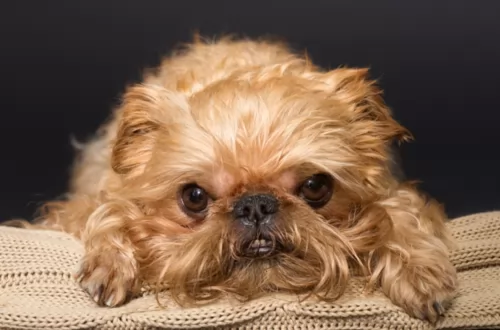 The Brug or Griffon Pug is not a purebred dog at this point in time. It is a cross between a Pug and a Brussels Griffon, currently known as a “designer dog” or a hybrid. This hybrid is really rare at this time but growing in popularity and breeders. Its exact history or original development is unknown at this time and needs to be researched as the hybrid develops into a breed, or breed clubs are formed. If you like either of the two breeds involved, you are sure to like the Brug. They are obviously not recognized by the major kennel clubs, but they are registered with a variety of hybrid/designer dog clubs. These include:
The Brug or Griffon Pug is not a purebred dog at this point in time. It is a cross between a Pug and a Brussels Griffon, currently known as a “designer dog” or a hybrid. This hybrid is really rare at this time but growing in popularity and breeders. Its exact history or original development is unknown at this time and needs to be researched as the hybrid develops into a breed, or breed clubs are formed. If you like either of the two breeds involved, you are sure to like the Brug. They are obviously not recognized by the major kennel clubs, but they are registered with a variety of hybrid/designer dog clubs. These include:
 The Basset Hound is a scent hound, a short-legged breed of dog belonging to the hound family. He is renowned for his long body, his loose skin and the very characteristic long, droopy, low-set ears. This is also a dog that drools a lot. The Basset Hound stands only 33 – 38 cm in height. You wouldn’t call him a small dog as he is robust and solid, weighing anything from 18 to 30kg. The Basset Hound is also well known for his eyes, where the red of the lower eyelid shows. Their calm, serious expression is also a familiar and much loved feature of these dogs.
The Basset Hound is a scent hound, a short-legged breed of dog belonging to the hound family. He is renowned for his long body, his loose skin and the very characteristic long, droopy, low-set ears. This is also a dog that drools a lot. The Basset Hound stands only 33 – 38 cm in height. You wouldn’t call him a small dog as he is robust and solid, weighing anything from 18 to 30kg. The Basset Hound is also well known for his eyes, where the red of the lower eyelid shows. Their calm, serious expression is also a familiar and much loved feature of these dogs.
The Basset is a short-haired dog, but in spite of that he sheds constantly. Coat colors can vary but the most common colors are white, tan and black – a tri-color coat.
This scent hound is a friendly canine, outgoing and playful. He gets on well with children and other pets in the family, and training and socialization can make him even more amicable with them. He adapts easily to life in the city or in the country.
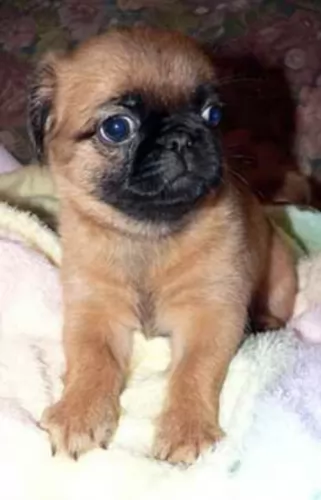 Like its two parental breeds, the Brug is a smaller sized dog – both parents are lab dogs and so is the Brug. Because they are hybrids, Brugs can be very different in appearance but most seem to have large eyes, squishy faces, black masks, fluffy hair, long black whiskers, short fluffy hair, flat ears and a fluffy tail. They could be in any of a number of colors including fawn, black, cream or apricot.
Like its two parental breeds, the Brug is a smaller sized dog – both parents are lab dogs and so is the Brug. Because they are hybrids, Brugs can be very different in appearance but most seem to have large eyes, squishy faces, black masks, fluffy hair, long black whiskers, short fluffy hair, flat ears and a fluffy tail. They could be in any of a number of colors including fawn, black, cream or apricot.
 The Basset's long body with his short legs give him a unique look. Add to that this breed is among the most even-natured and easy-going. It is why he makes such a cool pet. While he adapts well to both city living and country living, you can’t afford to let him become a couch potato. Sitting around and eating consistently will just make your best friend sick and increase your medical bills for him.
The Basset's long body with his short legs give him a unique look. Add to that this breed is among the most even-natured and easy-going. It is why he makes such a cool pet. While he adapts well to both city living and country living, you can’t afford to let him become a couch potato. Sitting around and eating consistently will just make your best friend sick and increase your medical bills for him.
The amicable Basset Hound is child friendly and because he isn’t particularly territorial, he will be alright with your other pets too. If you're looking for a wonderful friend who will be loyal to you, the Basset is waiting to fill the role of companion for you.
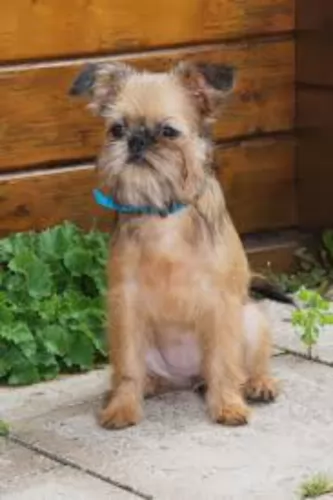 This hybrid is a loyal little dog. They are an affectionate lap dog that wants to be with his humans all the time. They have a very pleasant disposition and do well with children and other dogs. They might be shy to begin with but will warm up to affection. However, they are willful and self-important at times. This is tempered by their great sense of humor and empathy to its peoples’ moods. Left alone too long, they will tend to bark excessively.
This hybrid is a loyal little dog. They are an affectionate lap dog that wants to be with his humans all the time. They have a very pleasant disposition and do well with children and other dogs. They might be shy to begin with but will warm up to affection. However, they are willful and self-important at times. This is tempered by their great sense of humor and empathy to its peoples’ moods. Left alone too long, they will tend to bark excessively.
 The Basset Hound is a pretty robust breed and with proper nutrition and exercise, can live up to 12 years of age but this particular breed is prone to some major health conditions.
The Basset Hound is a pretty robust breed and with proper nutrition and exercise, can live up to 12 years of age but this particular breed is prone to some major health conditions.
Cherry Eye is seen quite often in Basset Hounds. It is very painful because the tear gland tears away and it will require surgery before infection sets in. Also, glaucoma is an inherited eye disease that needs to be checked out as it can lead to blindness. The eye is red and the dog is constantly rubbing at it.
This is when the cartilage in the Basset’s joints don’t attach to the bone properly. It is known as osteochondritis dissecans or OCD. Be careful to stick to the recommended growth rate suggestions for feeding with a Basset puppy.
Basset Hounds are more prone to a heart condition known as dilated cardiomyopathy, or DCM. It is where the heart becomes large and weak so that it battles to pump blood to the body.
Other illnesses to look out for are Canine Hip Dysplasia and obesity.
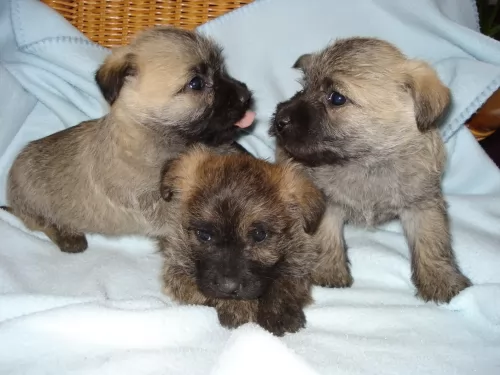 Usually the hybrid dog can have better health than either of the parents. This is true with the Brug as well, but there are also some issues they may inherit from the parents or face simply because of their size and complexion. These include:
Usually the hybrid dog can have better health than either of the parents. This is true with the Brug as well, but there are also some issues they may inherit from the parents or face simply because of their size and complexion. These include:
 Watching his diet. He will need quality, nutritious food and plenty of exercise.
Watching his diet. He will need quality, nutritious food and plenty of exercise.
It is also a good idea to get into the habit of brushing his teeth a couple of times a week with a special dog toothbrush and toothpaste. Never use toothpaste made for humans.
Clean his long ears and keep them dry. The vet will show you precisely how.
Be sure to see that he get his puppy vaccinations, and that you continue to give him vet check-ups when he shows signs of sickness.
He has low grooming needs but brush his coat twice a week to get rid of dull, loose hairs.
He is a smart, active dog with lots of energy so set aside time to have ball games with him and to get him out of the yard with walks.
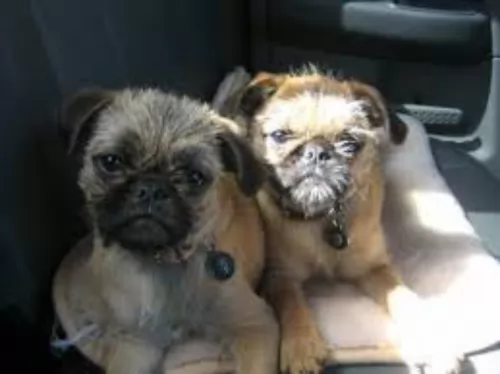 Don’t let this dog get overweight. Feed a high quality dry food intended for small or toy dogs. One fourth to one half of a cup per day in two separate meals is what is recommended.
Don’t let this dog get overweight. Feed a high quality dry food intended for small or toy dogs. One fourth to one half of a cup per day in two separate meals is what is recommended.
Patella Luxation or slipped knee caps – small dogs often have this issue. The patella is the knee cap and layman often called it a slipped knee cap, but it is also called slipped stifles. The femur, the tibia and the patella do not line up and this causes an abnormal gait or even lameness. Puppies are born with this, but it does not exhibit symptoms until years later. Arthritis is the most common result. Occasionally surgery is required.
Eye Issues – Cherry eye, a genetic disease, as well as irritation from air borne particles, allergies or scratches.
Skin Allergies – They can have skin allergies so watch for excessive licking or scratching.
Breathing Issues – Asthma and respiratory issues are common among small dogs with these types of faces.
Like their 2 breed parents, the Brug is a small but energetic hybrid. They need to play and run on a daily basis. Leash walks are good, but they need a yard or dog park as well. They are athletic little dogs and are good at tracking, obedience and agility. You cannot force them to do an activity but if its fun they will jump right in.